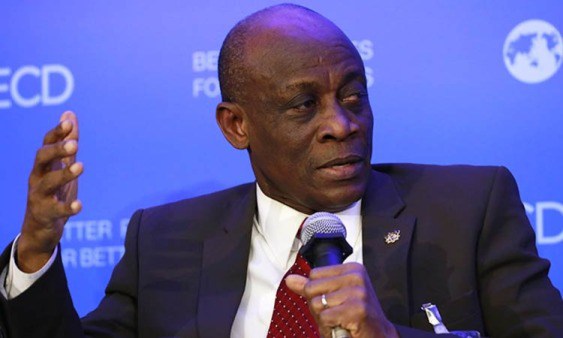Seth Terkper, a former Minister of Finance, has urged African governments to strive to make their debts sustainable to attract development finance assistance.
“Africa must do something about its debt, otherwise, we might be shut out of development finance,” Mr Terkper who led Ghana’s 16th International Monetary Fund (IMF) loan-support programme, said.
Mr Terkper, also the Executive Director of Public Financial Management (PFM) Tax Africa Network – a consulting firm, was engaging journalists virtually on the back of the just ended International Monetary Fund/World Bank Group (WBG) annual meetings in Washington, US.
He explained that because many African countries have reached lower and middle-income status, they could no longer rely on grants and concessional financing for sustainable development and poverty alleviation.
As such, development finance would be supportive going forward, hence, the need for African governments to assiduously work towards resolving their debt burden.
In its April 2024 Regional Economic Outlook for Sub-Saharan Africa, the IMF observed that after four turbulent years, the region has seen some gradual improvement.
The region’s growth is projected to rise from 3.4 per cent in 2023 to 3.8 per cent in 2024, but the report noted that “not all is favourable,” as the funding squeeze persisted.
The report indicated that governments in the region continued to grapple with financing shortages, high borrowing costs, and impending debt repayments, which ought to be dealt with.
“Amid these challenges, sub-Saharan African countries will need additional support from the international community to develop a more inclusive, sustainable, and prosperous future,” the report noted.
Regarding policies policy priorities, Mr Abebe Aemro Selassie, African Department, IMF, said it was important for African governments to continue to improve public finances, with an emphasis on domestic revenue mobilisation.
He was speaking on the release of the April IMF Regional Economic Outlook for Sub-Saharan Africa, last week.
He also encouraged a sustained focus on inflation reduction, while implementing reforms to enhance skill development, spur innovation, improve the business environment, and promote trade integration to secure more affordable and stable financing.
Latest Stories
-
Global south leaders call for bold rethink of democratic futures at high-level Africa dialogue
32 seconds -
Suspected suicide bomber kills 12 in Nigeria’s Borno state
7 minutes -
Customs cautions public against bringing vehicles without manifest to Ghana
26 minutes -
Many children do not know they have eye problems – Coordinator
33 minutes -
Ghana welcomes Europe-Iran diplomatic thaw, urges Israel to join talks
41 minutes -
CCMA to demolish all dilapidated buildings in Cape Coast – Mayor
54 minutes -
Tunisia sentences ex-President Marzouki to 22 years in absentia
1 hour -
New disability hub in Ho offers life-changing support for residents
2 hours -
Karpowership Ghana wins double honours at 7th HESS Awards
2 hours -
Armed men on motorbikes kill 34 Niger soldiers, ministry says
2 hours -
Police arrest suspect exposed by CCTV footage
2 hours -
The presidential feud that even death couldn’t end
2 hours -
Hundreds of Voice of America reporters fired as Trump guts outlet
3 hours -
Gov’t directs NACOC to operationalise Substance Use Disorder Rehabilitation Fund
3 hours -
TDC Board tours project sites, reviews progress and future development plans
3 hours

